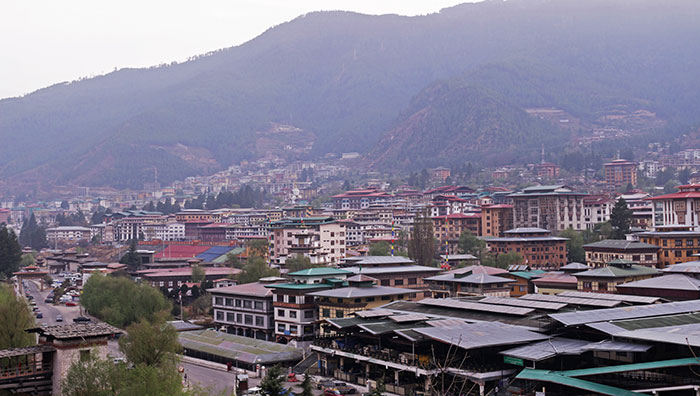Loan deferment and interest waiver not much help to the tenants
Thukten Zangpo
In about six months, the loan deferral service extended to Bhutanese who borrowed before April 2020 to cope with the Covid-19 pandemic will be over. It also means that the benefits that a handful of house owners let trickle down to tenants will come to an end.
For the salaried group, house rent is the most expensive monthly expenditure. The burden doubled or tripled for many who were laid off or totally lost their source of income. According to the National Housing Policy 2020, 58 percent of Bhutanese reside in a rented house, with a majority of households facing a moderate to severe rent burden, paying more than 40 percent of their monthly income in house rent.
Internationally, a baseline of 30 percent of the household income is taken as the maximum proportion of income available for payment towards housing rent.
While a few who had enjoyed a reduction in house rent are worried that rents will increase after July 2022 after the monetary measures come to an end, many who had not enjoyed or enjoyed the benefits of concession on house rents for a few months are worried about further escalating house rent.
A former taxi driver, Sonam, who lost his job because of the pandemic, said that despite the request to decrease the rent, house owners turned a deaf ear.
“We expected certain rent concessions for at least a few months last year,” he said. He said he left his job because there was too much competition in the market with the emergence of new taxis in Thimphu. He runs a farm now.
“With the Tenancy Act 2015 giving liberty to the house owners to increase house rents by 10 percent after every two years, it will be very difficult to survive in the future, “he added.
A former freelance tourist driver, Jangchub Dorji said that an increase in the rent by a few thousand makes a huge difference to tenants. He quit working in the construction sector because of default payment and sells potato fingerlings now.
A civil servant, Ugyen Tshering, said that he got a rent concession of 20 percent for six months last year. He added that while house owners benefited from the interest waiver and loan deferment schemes, the benefits did not trickle down to tenants as was expected. Authorities did not make it mandatory to reduce house rent. It was left to “moral responsibility.”
The salaried group, especially the low-income group, are reeling under the high inflation rate coupled with increasing house rent. Increasing the loan repayment schedule to 30 years, many said, had not made a difference. “It has not resulted in reduced house rent, or at least, not increasing it,” said a civil servant who recently got a house rent increase notice from his landlord.
What house owners say
House owner Dawa Sonam said that he gave a 50 percent concession for three months. He added that he is quite comfortable with the loan repayment and has not increased the repayment term to 30 years. Another house owner, Tshering Dema, said that her tenants were given a 30 percent concession for three months and 20 percent for another three months last year. She added that a 50 percent rent concession was also given to the ones in need.
“This year I wanted to increase the rent as per the Act, but I did not because of the pandemic situation. I am thinking of increasing it next year,” Tshering Dema said. She said that 50 percent of the income from rent is paid to the banks and the rest goes to her family expenditure.
A house owner, Thuji Wangchuk, said that he gave a 20 percent flat rent concession to all the tenants, and a 50 percent rent concession to those working in the tourism industry, 30 percent to those working in the drayangs, and 100 percent to those working in salons and parlours from April last year. On the increment, he said that he will wait until June 2022.
A maximum base rent system?
A lawyer, Sonam Tshering, said that tenants will continue to suffer at the hands of the owners because the Tenancy Act of Bhutan 2015 allows it, which allows a 10 percent increase every two years.
“House owners have converted the provision as their right and imposed it on the tenants without assigning any reason, simply because the law allows it,” he said, adding that the rationale for 10 percent is based on the maximum inflation rate.
Sonam Tshering said that assuming a current average house rent at Nu 10,000 per month, in 10 years the rent will be Nu 14, 640 which is more than 46 percent of the monthly rent.
“If a tenant stays for 20 years in the same house, the rent will increase by more than 100 percent,” he added.
To protect tenants, Sonam Tshering said that a maximum base rent system must be instituted, which means an increase in rent stops after some time.
The urban population has increased from 30.9 percent in 2005 to 37.84 percent in 2017 and is projected to rise to 56.8 percent by 2047 as per the Population Projections for Bhutan, 2017-2047.
Affordable housing is a rising concern in urban areas. The National Housing Development Corporation Limited has created only 2,073 housing units against the 28,973 civil servants. The government has plans to build 1,000 affordable housing units for middle- and low-income residents.
“Only affordable housing schemes undertaken by the government can bring down rents,” said a corporate employee. “Private house owners are obliged to the banks. The government should either reduce the interest of housing loans or build affordable housing to ease the burden.”


